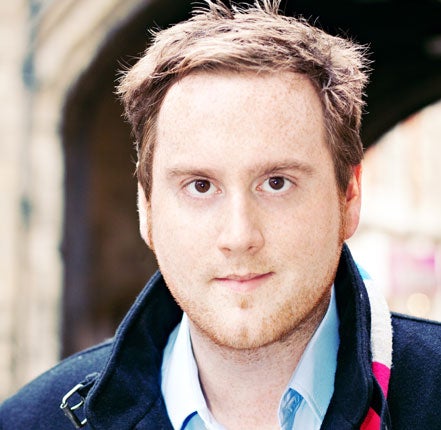Don’t let convention kill innovation

Your support helps us to tell the story
From reproductive rights to climate change to Big Tech, The Independent is on the ground when the story is developing. Whether it's investigating the financials of Elon Musk's pro-Trump PAC or producing our latest documentary, 'The A Word', which shines a light on the American women fighting for reproductive rights, we know how important it is to parse out the facts from the messaging.
At such a critical moment in US history, we need reporters on the ground. Your donation allows us to keep sending journalists to speak to both sides of the story.
The Independent is trusted by Americans across the entire political spectrum. And unlike many other quality news outlets, we choose not to lock Americans out of our reporting and analysis with paywalls. We believe quality journalism should be available to everyone, paid for by those who can afford it.
Your support makes all the difference.Modern Business has to a large extent become a paradox. As barriers to trade have been relaxed and technology has opened up global market places to the smallest of companies, for a variety of reasons, the conventions created by technology and business theory are killing innovation.
Far too often companies think inside the box and follow the crowd, as they want proven marketplaces and to follow existing business theory to benchmark ideas. The simple idea of grabbing a small part of a large marketplace has become overly compelling to new business start-ups, meaning that ventures are often doomed to failure from the outset.
True entrepreneurs are not interested in convention, following crowds or, quite often, what other people think. No real entrepreneur will refer to a textbook or management theory; the very principle of which is an anathema to free thought and innovation.
There are many examples of business that would never have existed if convention had played a part in the minds of the founders. Take Microsoft: when it was founded by two university drop-outs in 1975, its core market did not even exist - the very machines that would make its founders two of the richest men in the world had not been invented. It took the biggest single shift in human behavior since the industrial revolution to make their business take off, but it happened. Was this by skill, luck or sheer determination? The answer is all of the above.
My peers in the investment community often bemoan the number of proposals they receive, which in effect are clones of Facebook, Google or in some cases Facebook and Google combined. The proposals that really interest us in the investment community are the ones are based on true innovation: it might be technology-based, science-based or even as simple as a gadget to fix table legs. But at the very least our first thought needs to be, ‘could there be a market for this?’ - as opposed to thinking ‘this has already been done’. When a truly innovative proposal lands on your desk, it’s exciting for the investor. At the very least it marks the entrepreneur out as somebody to keep in your contacts book for future reference.
If you want to be a true innovator and successful entrepreneur, you need to be prepared to go against convention. If it’s never been done before, that’s a good thing. Don’t be afraid to fly in the face of conventional wisdom or what your university lecturer taught you, always remember nobody ever learnt how to create a Facebook, Google or a Microsoft from their teacher.
Simon Cavalier-Jones is an independent consultant in the financial and business turnaround sector, as well as a FIG head.
Join our commenting forum
Join thought-provoking conversations, follow other Independent readers and see their replies
Comments